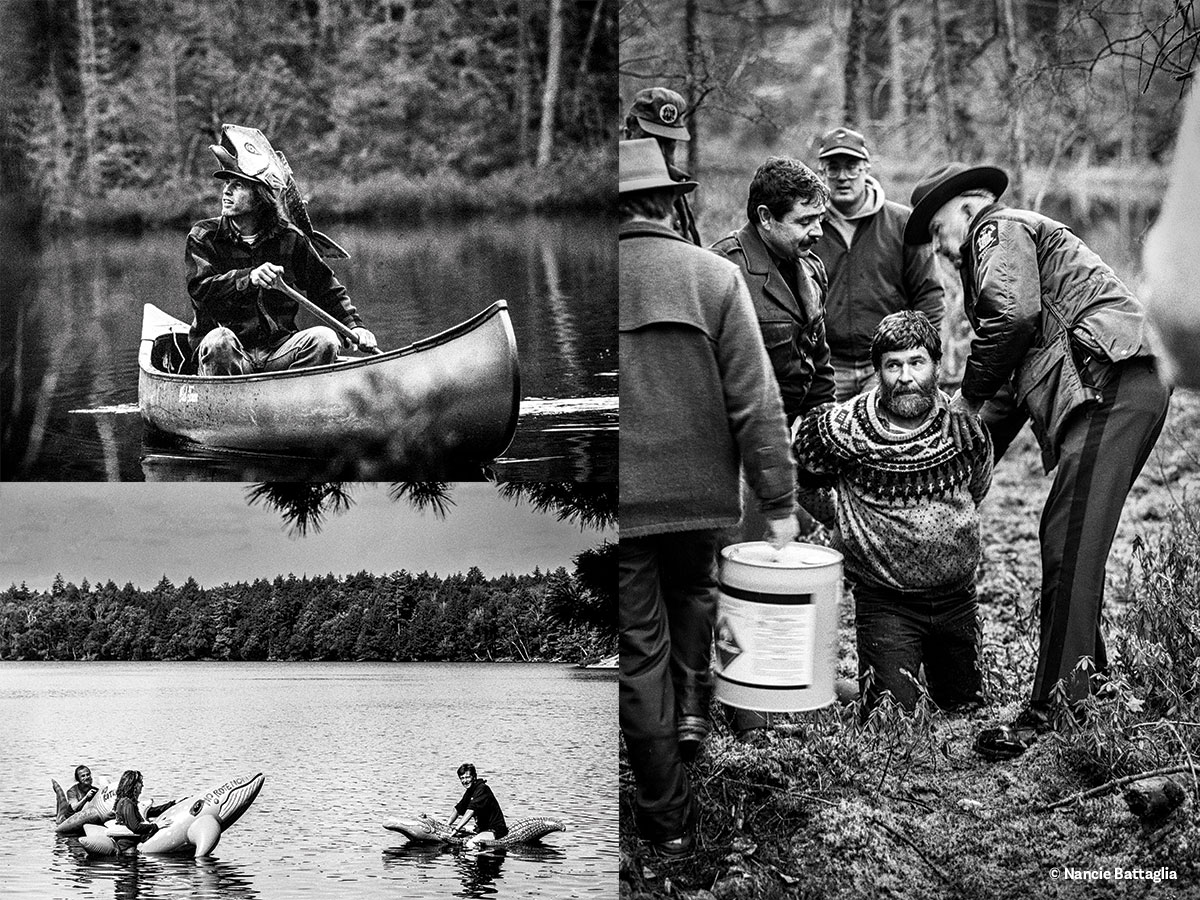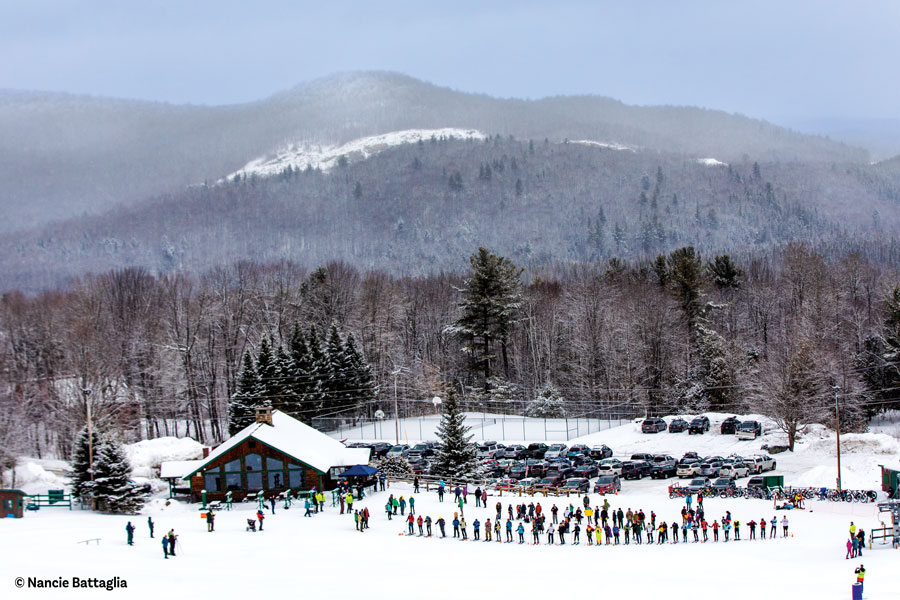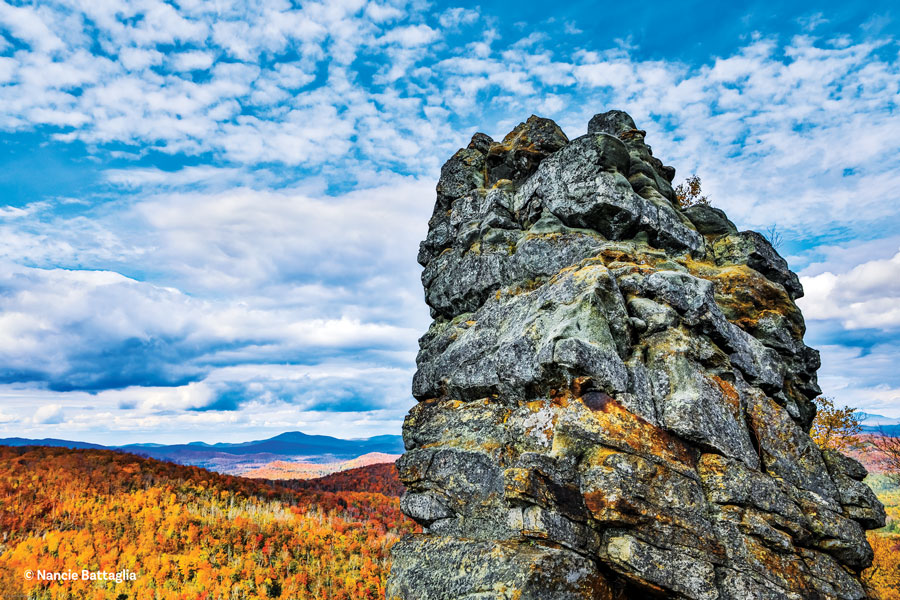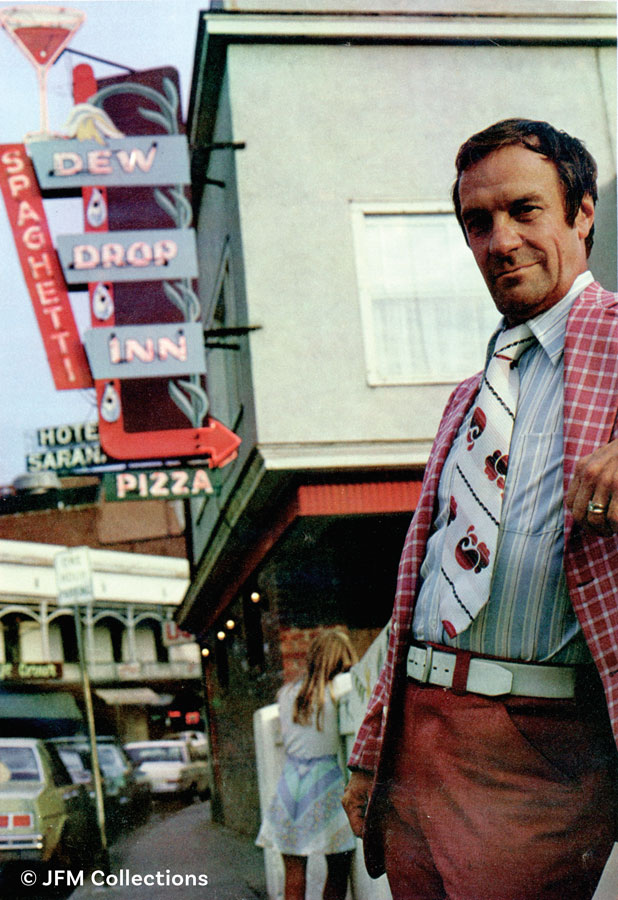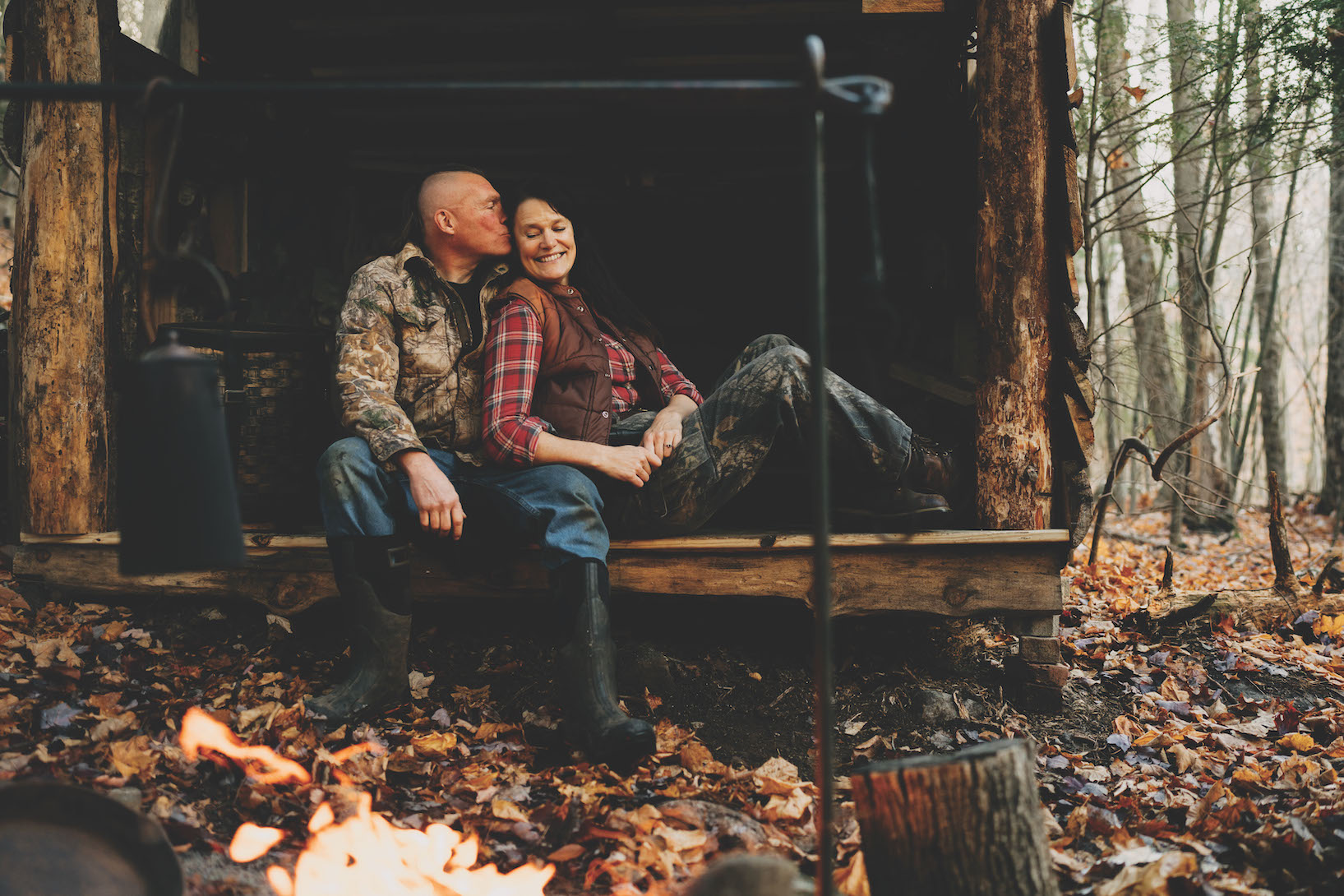Illustration from shutterstock
In fall 1964 Arthur Kleps, a bored school psychologist for Clifton-Fine and three other North Country districts, was captivated by a New York Times article about psychologist Timothy Leary and two colleagues fired from Harvard for pursuing altered states of reality through a chemical compound called lysergic acid diethylamide, LSD for short.
“When I discovered that a group of perfectly respectable intellectuals were taking LSD and psilocybin and apparently functioning with great practical efficiency at the same time, indeed, having a ball, [I thought] to hell with school psychology. Putting Band-Aids on the corpse of the educational system was not my idea of an ideal life anyway,” Kleps wrote in his uninhibited 1975 book, Millbrook.
The 36-year-old sent an impulsive letter to Leary, received a scribbled postcard in return and soon visited the guru of the psychedelic counterculture at the Millbrook, New York, estate of William “Billy” Mellon Hitchcock, a trust-funder who bankrolled Leary’s luxurious commune lifestyle as well as a black-market acid-manufacturing operation.
Excited by the possibilities of a “turned-on” society, Kleps returned to his home in Star Lake, where he lived with his wife, Sally, and their two young daughters. “Knowing full well the utter unadaptability of my new style of consciousness to the uptight world of public education, I tried my best to continue functioning as I had in the past. . . . In any event, it wasn’t long before I wrote a ‘general report’ (a mimeographed paper for all teachers on a subject of general interest) on marijuana,” Kleps wrote. “Although I said nothing in it that would not be regarded as the most commonplace established doctrine today—don’t become alarmed at a little experimentation—it isn’t addicting—it may have medical and psychological usefulness . . . I was fired the next day on the vote of two of the four schools I served.
“Best of all,” he continued, “I was even guiltier than they thought I was. Fortunately, I had just borrowed a couple thousand. Instead of buying a new car with it, I went over to Cranberry Lake, which was and is a breathtakingly beautiful place about ten miles from Star Lake, and started asking around for something roomy and isolated off the road and on the shore.”
A real estate agent gave him a key and directions. Kleps and his wife hiked through the early spring woods and in a clearing on the east shore found Sunset Lodge, a former inn consisting of a house and four cabins—spring water, electric generator, fifty-foot dock, three wooden boats, one canoe, great view, no road in, fifteen thousand dollars. “This is the place,” he thought. “I don’t think I have ever been happier in my life.”
At this point Kleps hadn’t tried acid, but he had tripped on morning glory seeds, certain species of which can have a mild hallucinogenic effect, so he renamed the camp Morning Glory Lodge. On his next visit to Millbrook, someone slipped a heavy dose of pure Sandoz (the Swiss pharmaceutical company that first synthesized LSD in 1938) into Kleps’s brandy snifter. It knocked him to the floor. “It wasn’t that I couldn’t think—the trouble was that I couldn’t think any single thing: it seemed as though all the thoughts which had entered the minds of men and beasts in the last million years were going through my mind at the same time,” he recalled. The experience left him feeling spiritually advanced.
Kleps returned to Cranberry, where he and Sally set about mending boats, repairing the water pump and getting the generator working. “By the end of the week we were all moved in and I had invented the Neo-American Church. An order for one thousand peyote buttons had gone out to a peyote rancher in Texas named Elsie. . . . Perfectly legal. Each new member would get five buttons and a membership card,” he wrote.
The Neo-American Church—founded on the catechism that “psychedelic substances such as LSD are sacraments in that they encourage enlightenment, which is the realization that life is a dream”—launched Kleps into the vanguard of Leary’s disciples. Whether the church was a sincere spiritual movement, a clever scheme to evade government regulations (the Native American Church is allowed to use peyote in religious rituals) or a ploy to party with adventurous girls isn’t clear. Kleps, the son of a Lutheran minister, championed—and exploited—all aspects.
He piloted an outboard into town every day to get kerosene, cigarettes and food at the general store and to check the post office for Neo-American Church memberships. He had sent diplomalike announcements to five hundred people, including poet Allen Ginsberg, declaring them members of the new religion, according to Acid Dreams: The CIA, LSD and the Sixties Rebellion (1985) by Martin A. Lee and Bruce Shlain. “The mortgage payments had to come from visitors’ contributions,” Kleps explained in his book.
When summer arrived so did the visitors, almost always at night. “Johnnie Merchant’s big boat would appear off the end of the dock, pitching and wallowing, people waving, horn tooting. . . . Out would step some city slickers, usually stoned out of their gourds and fortified with a few drinks they had just downed at Johnnie’s father’s motel-bar [now the Cranberry Lake Lodge]—the only such place in town.”
The summer of ’65 passed in less of a blur than you’d expect, though the camp’s present owner, Carol Coufal, notes that the meticulous handwriting in the inn’s guest registry, which she still has, deteriorated into scrawl during the Morning Glory era. (One of the entries: “2 truck drivers.”) Kleps fished daily and took tripping clients around the lake in the motorboat. After one guest was shocked by the crazy laugh of a loon, Kleps made a point of warning visitors to “expect unearthly shrieks.” A chemist from Boston shared bufotenin, a psychedelic found in certain toad skins. At the end of a stay people departed the dock, as Kleps noted, “always happier but not necessarily wiser.”
The proprietor and chief minister wasn’t totally indiscreet. He was quite aware that LSD was still legal, more or less. Amendments to the federal Drug Abuse Control Act hadn’t taken effect yet. Thousands of peyote buttons were drying openly on an upstairs floor, whereas marijuana had to be hidden in the woods. Cranberry Laker Dave Allen, whose family owned a gas station at the time, recalls when an “undercover” federal agent rented a small outboard and sat offshore of Morning Glory Lodge pretending to fish, taking pictures with an enormous camera.
Kleps hoped one day to buy Birch Island, which he could see from the lodge. He dreamed of having a mysterious hooded figure row guests to the island in a dark boat with black flags and billowing gauze, “starting when the rising sun first touches the island, yeah, and, just before the boat leaves, a naked nymphet will come running down to the boat and hand the guy a crystal goblet of champagne with about 500 mics in it. He downs it, and then the boat leaves for the dawn of Nothing.”
Guests from around the country—including “a boatload of lesbians from New York City who had all seemed to enjoy ‘freaking freely’ in the woods,” a few hippies and a wandering alcoholic in a black Thunderbird—continued to make the pilgrimage through September. Kleps loved autumn in the Adirondacks, when most of the tourists had gone and the stars “almost knock you down with their glory.”
Every morning after collecting mail and groceries he would stop at Charlie Merchant’s bar for a Michelob draft. One day Merchant told him there had been a telephone call from Millbrook: Billy Hitchcock was flying Timothy Leary up that afternoon.
Kleps bought a bottle of whiskey and went to the airport in Lake Clear to pick up the two men he most wanted to impress. Drunk and stoned on grass, Kleps drove the pair back to Cranberry and across the lake in a rainstorm. Leary and Hitchcock stayed sober. “Here we were, a collection of madmen such as the world had never seen, and the conversation was actually forced,” Kleps recalled. “Practically nothing occurred during the short visit.”
Kleps and his family spent the winter in Florida. Come April 1966 he decided to drink his way back north. On the way he made the mistake of giving a gas station attendant an acid-soaked sugar cube and then falling asleep in his car. He awoke to a cop shining a flashlight on a bucket of foil-wrapped cubes. The police let him go but kept the drugs.
Overjoyed to be back at Cranberry Lake, Kleps received a phone call at Merchant’s bar one morning. It was a staffer for the Senate Juvenile Delinquency Subcommittee asking him to testify at a hearing on the legal status of LSD. He jumped at the chance for national publicity. Comparing his church’s use of hallucinogens to the Catholic wine sacrament and Native American peyote rituals, Kleps called LSD “holy communion” and argued that the government had no right to interfere. Senators respectfully disagreed, but his testimony was hailed as a triumph by those seeking to keep possession of LSD legal (distribution had just been outlawed).
Upon his return to the Adirondacks, Kleps wrote, “Charlie Merchant greeted me with great excitement. All hell had broken loose. I had been on the morning news and the evening news. . . . Any publicity for Cranberry Lake was good publicity as far as he was concerned.” The mailbox was stuffed with membership applications. “It would be duck soup to fill [Morning Glory] all summer with paying visitors,” he surmised.
But soon he received a letter from his wife, who’d had it with the Adirondack scene. She wanted to live in Florida, and if Kleps wanted to be with her and the kids that’s where he would have to go. “Cranberry Lake, glittering in the early summer sun, might as well have been a gigantic cesspool for all I cared. I started drinking like Prohibition was right around the corner.”
Guests came, and he limped through the summer. Sally came up in an attempt to help, but there was no more joy in it. Kleps sold his equity in Morning Glory for two thousand dollars. The money quickly disappeared. To help make ends meet he harvested a patch of marijuana a guest had spied growing next to Route 3 between Star and Cranberry Lakes. “Sally wasn’t pleased with these developments,” he wrote. She left and filed for divorce two days later. “I had sold Morning Glory Lodge for nothing,” he lamented.
The “mad monk,” as Leary called him, took refuge at Millbrook. Kleps went to court, again to defend the Neo-American Church’s use of hallucinogens. “Not surprisingly, the Boohoos [as church members were termed] lost their case when the judge ruled that an organization with ‘Row, Row, Row Your Boat’ as its theme song was not serious enough to qualify as a church,” according to Acid Dreams.
When the Millbrook commune disbanded under police pressure in 1968, Kleps moved first to South Hero, Vermont, near where he had spent childhood summers. He would later move around the country in obscurity, renting a place in Wanakena for a few months in the 1970s, and going to jail thirteen times but continuing to pursue the life of the altered mind. “What the hell,” he concluded at the end of his book. “I never claimed to be perfect. It was still a good show and one can only resolve to do better next time.” He died in North Troy, Vermont, in 1999.
Morning Glory Lodge, again known as Sunset Lodge, has been owned by Jim and Carol Coufal for 37 years. (He’s a retired forestry professor who spent part of his career at the Ranger School, in Wanakena; she’s a retired English teacher who once worked in local schools.) There are few tangible remnants of the perceptual events of those two summers, Carol says, just a few bizarre paintings.
Opinion is mixed about the effect the Morning Glory era had on Cranberry Lake. The locals were mostly amused, recalls Dave Allen, but not that interested. “It was the old North Country native thing: we ignored them. They were the crazies up the lake.” Neighbor Mark Friden recalls watching “people dancing stark naked around the bonfire on more than one occasion,” riveting entertainment for a curious thirteen-year-old.
Town historian Jeanne Reynolds, who ran the general store back then, says Kleps was “very pleasant” as a customer. “All I know is all the kids were warned not to go up there,” she adds. A few did but don’t want to talk about it. Even though the sixties did happen in Cranberry Lake, small-town disapproval apparently still counts for something.

















